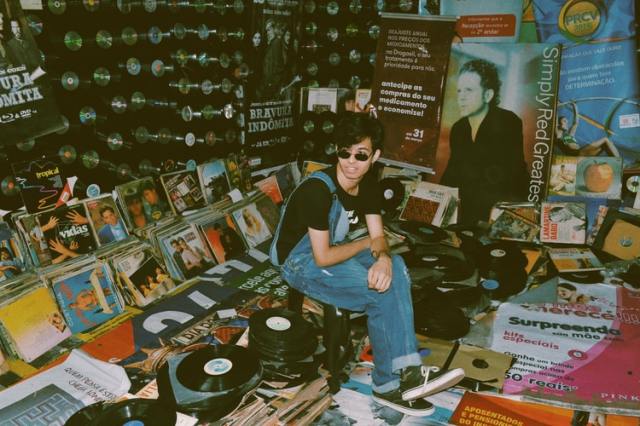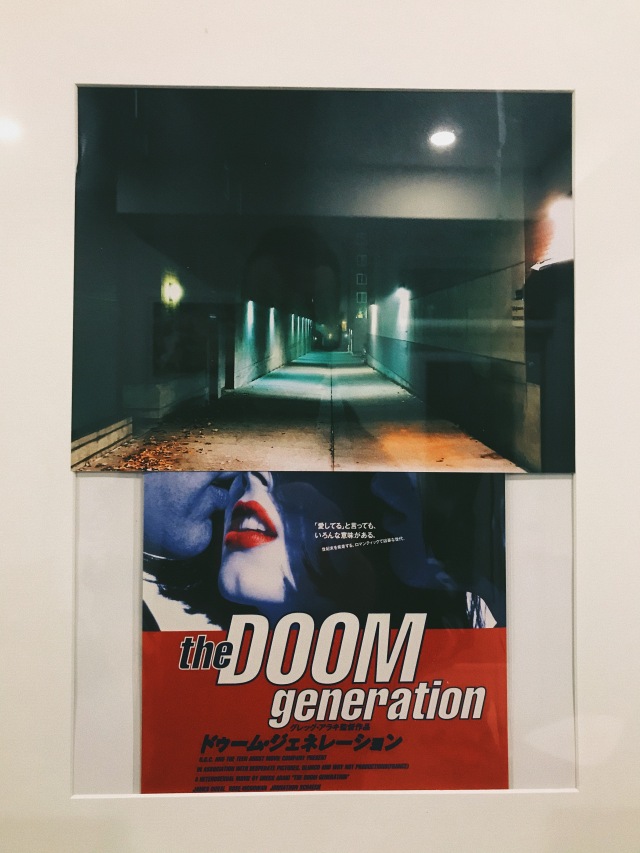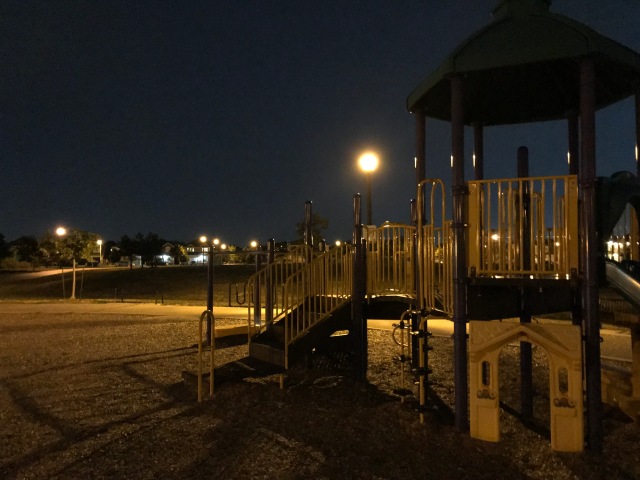Photo by @endka_1 (Katsiaryna Endruszkiewicz on Unsplash), Lollipop outfit, cherry image by @isiparente (Isi Parente on Unsplash)





Gregg Araki. New Queer Cinema. Both are statements in their own right. When I describe Gregg Araki or New Queer Cinema to friends who have no idea about Gregg or his Teenage Apocalypse Trilogy, the most simple way I can explain them is that if you’re meant to find them, you will. And I don’t mean that in a “you’re not cool enough” type way, but at the same time if you are weird enough and into campy & dark acid like teen films, you will find them. These films are for the outcasts who think differently, who view the world in a different and skewed format.
Rewinding back to my early “tween years,” I became really interested in indie/teen films that happened to be from the 90s to early 2000s era. They were different and not all of them were actually progressive in some ways, but a lot of them brought forward real types of teen culture that people were afraid to show. They seemed more fun to me than what my generation and I were getting fed at the time. From “I Know What You Did Last Summer” to “Scream,” teens were being shown as angsty & strong headed, silly, narcissistic, but also intelligent. That’s what I personally thought was great about that time from the looking glass of where I experienced it. There were depictions of realistic teens and then there were the parody-like and artificial archetypes in campy, funny yet dark films that were meant to poke fun at how older generations looked at teenagers in the 90s.
Firstly, I discovered Sarah Michelle Gellar and Rose McGowan and became enamoured by their filmography. There was no one like them around in films (both different, but with similar messaging.) This led me to discover Gregg Araki and his “Teenage Apocalypse Trilogy” (Rose had roles in both “The Doom Generation” & “Nowhere.” I remember how much I followed the rules back then. I watched the trailers for both “Doom” & “Nowhere” so many times. Until I was finally allowed to order them online when I was beginning high school. But then I let myself watch “Mysterious Skin” (another Araki film) online when I was in grade 5. I don’t know why I thought this was better for me to watch at that age? It really affected me, but I did think it was an amazing film. It’s definitely one close to my heart.
But both “Doom” & “Nowhere” (There is also another film in the trilogy called “Totally Fucked Up”) were unlike any type of film I had ever witnessed. The cinematography, nihilistic tones against the hatred towards different types of youth in America, were both things I was never taught in school. Gregg was my schooling for queer individuals. I related to these hyper, colourful, and angry characters. Without them, my art and my character wouldn’t be the same. They took me up in a space shuttle and set me free into the world I never knew I was longing for. Even right down to the soundtrack. I felt like I needed to be at these parties in “Nowhere.”

Within the past 10 years (with tumblr, indie cinema gaining more attention due to the Internet, etc.) there’s been a resurgence in popularity towards Gregg’s films. There’s more young people who have now found these films that are nearly 25 years old now. These people now resonate with the themes that the films display (from the amazingly weird designed sets, random cameos and scenery that felt so well composed.) What is it with Gregg that finds more people drawn to his films and elements as the years go by? What I think is that Gregg’s films don’t try to be something they’re not. They don’t try to act “a little edgy,” while still being accessible to big mainstream studios and audiences. They are in your face, certainly not for everyone, and going at full speed with power, sex, violence, and real issues that adolescents faced in the 90s in America. The same exact problems may have changed for the latest generation, but the problems are still there in different ways. Young people still have reasons to fight back (i.e., wage equality, sexual assault, racism, toxic masculinity, etc.) These young people who are realizing they are fighters and can change the world are becoming inspired by people (in this case a filmmaker,) who doesn’t hold anything back when it comes to the troubles that queer youth have to go through. Even as an adult.
The fact that there’s also a whole community of people who love Gregg’s films & New Queer Cinema can be really heartwarming. To me, when I find out someone is an Araki fan, it’s one of those things where I automatically can tell this person is wicked cool and understands the outcast way of life and thinking. I’m in shock that they aren’t bigger than they are, but I love that the Internet gave these films a new light beyond the indie film buff community. For not being on any internet movie platform, these kinds of stories from the 80s-90s era can sometimes fade into obscurity. But with a story and aesthetic as strong as these films give, it’s hard to not have these titles rise up in admiration again (whether it’s on Twitter & Instagram gifs, clothing lines, inspiring new dark teen films, etc.)
Imagine how cool it would be if there were more behind the scenes documentaries from the sets of the Apocalypse films? Personally, the most visuals I’ve ever seen were from makeup artist Jason Rail’s instagram account (@nosajliar on instagram) who actually worked on many Gregg Araki films back in the 90s, and now shares candid polaroids from his time on the sets. Every picture he shares is gold. From snapshots of Guillermo Diaz, Mena Suvari, Traci Lords, etc. It feels like things were truly indie & fun in the 90s because it looked like indie films truly didn’t have the amount of help they do now (in certain circumstances.) It seems like these artists behind the scenes worked hard and Gregg made sure the films were made the way he wanted. I even heard the sets in “Doom” & “Nowhere” were handmade. From the outwardly cool polkadot backdrop red, white, and blue backdrop to all the checkerboard print hotel rooms, this was DIY at its finest.
If you feel alone in your friend group, feel like an outsider in life, feel like the world doesn’t like people like you, Gregg’s films are for you. Especially films like “Nowhere” & “Doom.” And with lines like “look, you fucking chunky pumpkinhead!,” where can you go wrong?
#JUSTICEFORNOWAPOCALYPSE
The other night I walked along a suburban park area with my boyfriend and sister. This area was a part of my teenage years at one point in my life. There weren’t even that many memories there, but there were some. Some memories that were being tied in with new ones along the way in that night. It happens to me often. In which I go to places I have already been and experience a new version of it as I’m seeing it again. But it can also be a blur of a better version of that time I had been to that said place. To me that is true nostalgia. To me, there is not one type.
It happens to me more often at night and when it’s quiet. When I can hear my thoughts more without the invasion of other strangers’ words and loud noises. But there are other times I can drown it out and when it comforts me. It depends on the day and whether my mindset is clear or cloudy. It’s not black and white, but instead hazy.
When you have a memory of a park or a certain cafe and you revisit it, it can change. New thoughts can arise. A new opinion might surface. When you drive on a road you had memories of at an important stage in your life, you might always feel large depths of feelings towards it. When you attend a place with new people in your life that you once attended with others, it can bring a new and better experience. Or vice versa.
What’s the point of this you may ask? To explore my mind even more. To maybe have a similar experience or thought process as someone else by making more written pieces, and having conversations. Taking trips in my mind while I am out in places (new or old) that I feel a connection with, makes me thrive. I may not be the only one, but I am definitely one more person who is expressing how they feel in this social obsessed world. Where we are afraid to be in our heads. To enjoy our own company.
Til we explore again in our heads together,
A
